On 9 May 2022 in a celebration of “Europe Day”, the recently re-elected French President Emmanuel Macron gave a speech proposing a new way of interaction and integration of European countries.
Macron cited an idea of forming a “European Political Community” that would welcome candidates to European Union Member States, such as Ukraine, Georgia and Moldova, and even countries that left the organization, such as the United Kingdom.
The objective of Macron in citing this was to point out the obstacles that the time-consuming process of approval and inclusion of countries in the EU undermines the Union’s integration policy and demotival candidates.

How the process of associating new countries in the European Union works today
The entry of new members to the European Union depends on several stages and is a long and time-consuming process.
The first requirements to enter the EU are more focused on the political functioning of the state, where it must satisfy the economic and political conditions according to the criteria established in Kopenhagen in 1993. In addition, it must be a stable democratic government that respects the rule of law, freedoms and institutions.
According to European Commission the process takes place in three steps:
- Coordination with candidate and potential candidate countries
- Technical and financial assistance for reforms in candidate and potential candidate countries
- Treaty on European Union, legal basis for the accession of any European country to the EU
Candidates will go through these three stages and must have the approval of all Member States.
Currently, the countries that are in the process of applying for the European Union are Albania (since 2020), the Republic of North Macedonia (since 2020), Montenegro (since 2012), Serbia (since 2014), Turkey (since 2005). Bosnia and Herzegovina and Kosovo are potential candidates.
With the Russian invasion of Ukraine, President Zelensky signed the country’s request for entry into the Union, as did Moldova. Georgia also signed its candidacy in March 2022. By “coincidence,” the 3 countries have parts of their territories illegally occupied by Russian troops.
What would be the European Political Community proposed by Macron
In the speech of the French President Emmanuel Macron on “Europe Day” (May 9), he pointed out the difficulties of the great bureaucracy and delay of the process of enlargement and addition of new countries in the European Union.
He said that changes in the EU treaties are necessary to strengthen the integration of the organization between countries. From this, he proposed a new “European Political Community”, rather than necessarily a relaxation of existing laws.
“This new European organisation would allow democratic European nations … to find a new space for political cooperation, security, cooperation in energy, transport, investment, infrastructure, the movement of people.”
Emmanuel Macron in his speech, France24
Which countries could be part of the new European Political Community?
Macron’s proposal would accept those countries that are current candidates for the enlargement of the European Union, such as Ukraine and Georgia, and even countries that have already left the Union, such as the United Kingdom and Greenland (overseas territory belonging to Denmark, EU member).
The main objective of Macron’s speech was to defend the rapid acceptance and inclusion of Ukraine in an alternative European community because of the war with Russia, allowing easier transit of people and refugees.
In addition, he advocated the addition of Moldova and Georgia (even though it is a Caucasian country and not of Europe itself), as Moldova has a border with Ukraine and as Georgia suffers from military-political pressure from Russia.
The interests in encompassing the former States also come as a way to encompass the alliances of the EU and its international power.
The future trend of the “enlargement” of the European Union
It is not the first time that an alternative project of union between European countries has emerged outside the traditional mold of the European Union.
In 2017 there were discussions about a “Ultimate” policy within the EU, a policy that would allow greater freedom of integration processes for each Union country to achieve its individual progress.
However, the process received several criticisms since the “central” countries, such as France and Germany, would have fewer demands to match development with other member states. In this way two groups of international dynamics would be formed within the European Union itself, one group of alliances between the central nations and the other with the “marginal” nations, which would break the unity.
The former Prime Minister of Italy, Enrico Letta, also proposed a “European confederation” with aspiring EU member countries, which would start with a “shared economic area”, gradually adding commitments and eventually include a common defense clause.
But, what Emmanuel Macron’s speech shows us is that the demand to make alliances more flexible remains for some countries of the European Union. This shows the constant debate within the union between only accepting members 100% prepared to join the union but at the same time not demotivate the candidates not yet prepared so that they do not end up going inside the orbit of Russian or Chinese influence.
With Russian pressures increasing more and more on European countries, what we can expect is more policies that favor the enlargement of the EU and the addition of countries in its politics, as this will strengthen and gain greater geopolitical power.

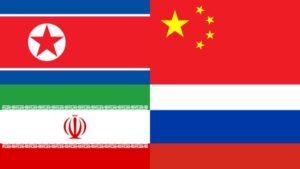
日軍第731部隊旧址_PB121201-e1713902593308-300x224.jpg)

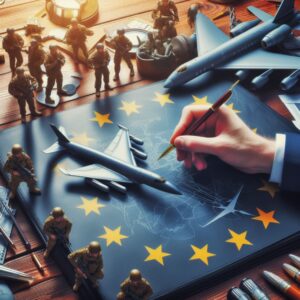
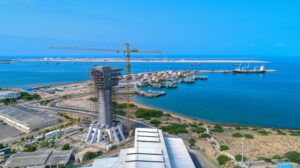
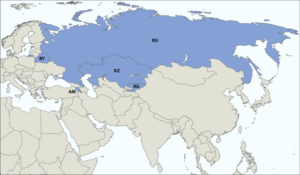





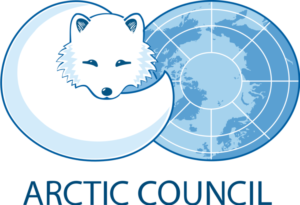

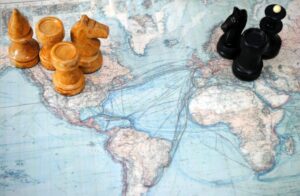

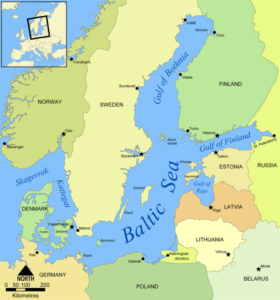

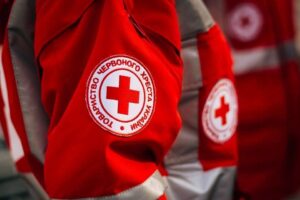

[…] after Brexit and the election of a nationalist party, the outcome may be different. The dissatisfaction of the […]
[…] Weimar Triangle Regional Alliance is an informal coalition that brings together France, Germany, and Poland in a strategic partnership to promote cooperation and policy coordination on […]